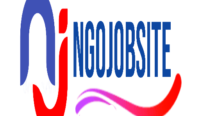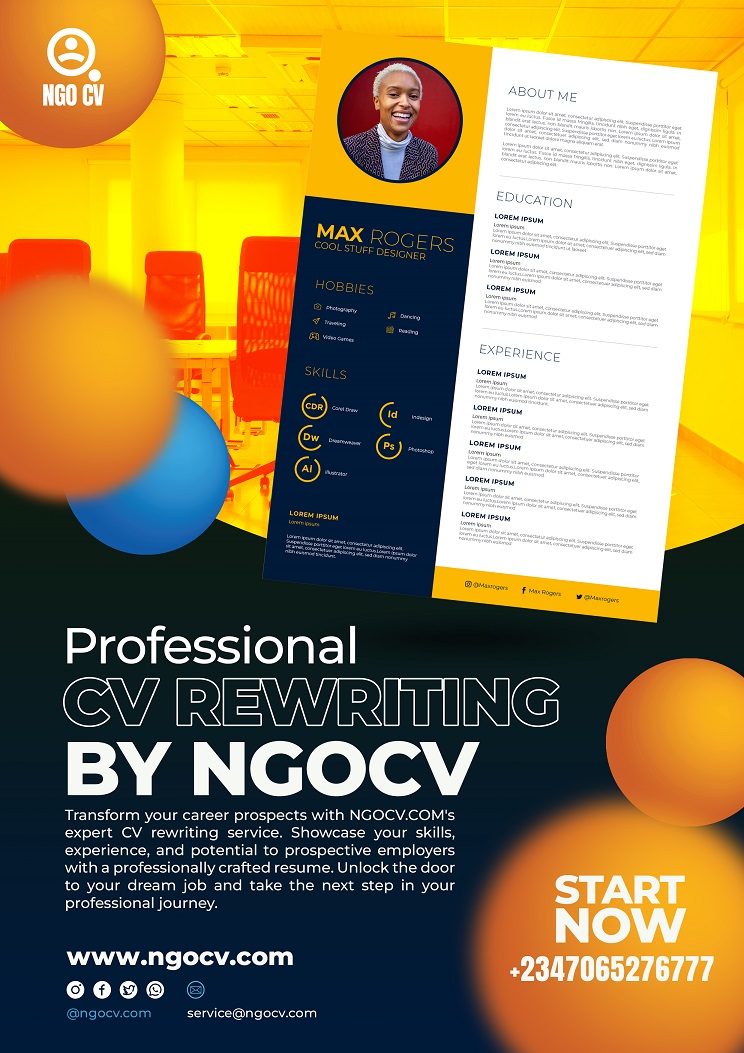
VITAMIN A SUPPLEMENTATION POST EVENT COVERAGE SURVEY IN SOKOTO, JIGAWA AND KEBBI STATES, NIGERIA
1. About Nutritional International
Nutritional International is a global organization dedicated to delivering proven nutrition interventions to those who need them most. Working in partnership with countries, donors and implementers, our experts conduct cutting – edge nutrition research, support in critical policy formulation, and integrate nutrition into broader development programs. In more than 60 countries, primarily in Asia and Africa, Nutrition International nourishes people to nourish life. This goal is achieved by advancing integrated, innovative, and sustainable solutions to reduce vitamin deficiencies through advocacy, technical and financial support in collaboration with other implementing partners and stakeholders.
2. Background and Justification
Vitamin A deficiency (VAD) is a major public health problem worldwide and is among the most important contributors to morbidity and mortality among pre-school age children particularly in sub-Saharan Africa. The National Food Consumption Survey carried out from 2001 – 2003 showed that approximately 1 in 3 (29.5%) children under 5 in Nigeria are Vitamin A deficient.
Vitamin A supplementation (VAS) for children 6 – 59 months of age is a life-saving intervention that is vital to reduce the risk of child mortality, morbidity, and avertable blindness in countries where VAD is a public health challenge. Nutrition International is committed to increasing coverage of VAS globally through various delivery platforms, including fixed site and door-to-door campaigns. Increasing coverage means overcoming demand- and supply-side barriers to children receiving VAS.
The government of Nigeria uses the biannual Maternal New-born and Child Health Weeks (MNCHW) to deliver essential health services to families, including VAS for children 6-59 months of age, and to increase demand for maternal and child health services. Over the last five years, Nutrition International has supported VAS through MNCHW at national and state levels in 14 states. Currently, Nutrition International, in collaboration with UNICEF, is supporting VAS in 7 focus states in Nigeria–Sokoto, Kebbi, Katsina, Jigawa, Kano, Enugu and Cross River States.
Available evidence suggests implementation of the MNCHW is largely partner driven and states need continual support from partners to effectively plan and implement the MNCHW. Also, because the main delivery platform for the MNCHW is the fixed post health facility, there is an observed marked inequity in the distribution of Vitamin A with those who are most in need being the least served.
Post-Event Coverage Surveys (PECS) are an important tool used to validate administrative coverage data from campaigns, evaluate the quality-of-service delivery, assess the quality of program implementation, highlight the barriers and boosters to VAS delivery and uptake and assess knowledge about the services delivered and whether program activities were effective.
Following the Semester 1 2024 MNCHW in Sokoto, Jigawa and Kebbi States, a PECS will be conducted to validate administrative coverage data collected during the campaign and assess the quality of the implementation of the campaigns. Specifically, the PECS will be used to:
- Triangulate the Semester 1 2024 MNCHW administrative VAS coverage data and PECS results.
- Identify where gaps exist in VAS coverage and where improvements can be made.
- Identify barriers to coverage, to help understand which children were missed and why; and
- Identify corrective approaches and strategies to ensure that children missed can be reached in future MNCHWs.
3. Objectives of consultancy
Goal: To conduct a PEC survey for the semester 1 round of the 2024 MNCHW campaigns in
Sokoto, Jigawa and Kebbi States
Specific objectives: This aim will be achieved by completing the following objectives:
Complete all necessary planning and preparation for the survey. Coordinate, supervise and quality assure data collection for the survey; and Clean, analyse and present the data from the survey.
4. Expectations
Under this Terms of Reference (ToR), the division of responsibilities is as follows:
- The consultancy team will: take responsibility for the field management and analysis of the survey, adhering to the quality assurance procedures set out in this ToR. The consultancy team will work closely with Sokoto, Jigawa and Kebbi States Ministry of Health, Sokoto, Jigawa and Kebbi States Primary Health Care Development Agencies (SPHCDA) and NI to achieve this.
- Nutrition International will: provide the consultancy team with generic PECS questionnaires and a generic indicator list; review and approve the survey plan; review and approve the final indicator list and final questionnaires; provide quality assurance guidelines for the consultancy team; monitor quality throughout the survey
in collaboration with NPHCDA/SPHCDAs; and provide technical support and guidance as needed.
5. Scope of work
The following section describes the activities the consultancy team will complete and the products and deliverables they will prepare.
Objective 1: Complete all necessary planning and preparation.
Activity 1.1: Prepare a survey plan setting out:
- A plan for random selection of clusters
- A plan for recruiting and training interviewers, including the composition of data collection teams (number of interviewers, supervisors, team leaders, etc.)
- A quality assurance and supervision plan for data collection
- A data collection plan that includes details of all necessary logistics and supplies
(including devices for electronic data collection)
- A timeline or Gantt chart
- A budget
Deliverable 1.1: Draft survey plan for approval by Nutrition International including all the elements listed in Activity 1.
Activity 1.2: Apply for and obtain all required permissions and approvals for the survey to take place, according to local standards, including:
- Obtain ethical approval from the relevant ethical committee in Sokoto, Kebbi and Jigawa states.
- Obtain all necessary local approvals required for implementing the survey (such as approvals from the National Health Research Ethics Committee, State Bureau of Statistics, States Ministry of Health /Primary Health Care Management Boards).
- All consultancy team staff who will have full access to survey data and curricula will complete an internationally recognized training course on Protecting Human Subject Research Participants.
- The survey training will cover ethics for all staff and require signed confirmations from each staff member confirming s/he is fully aware of and bound to abide by ethical conduct with all aspects of this survey. NI will not use or disclose any survey data for personal or agency use and will not disclose any data that could in any way be connected back to any survey participants, thus ensuring full confidentiality of collected data. Should there be any desire to use the data for purposes other than the protocol associated with this survey, these additional uses must be approved by NI and the relevant ERB in the state.
- Training must also include “child protection” standards, relevant to Nigeria and the fact that the adolescents (under 18 years of age) interviewed will not always be accompanied by a guardian. Logistics will include preparations to inform and obtain consent from parents prior to the interview.
- If interviewing adolescent girls, “informed assent” will be sought from adolescent girls, and the consultants will ensure no adolescent girl is alone with any supervisor or enumerator in a closed or distant room with no ready line of site to observers.
Deliverable 1.2.1: Written approval from all necessary ethical review committees and government agencies in the state (e.g., State Bureau of Statistics, State Primary Health Management Board) prior to initiating data collection.
Deliverable 1.2.2: Certificates demonstrating completion of internationally recognized training on Protecting Human Subject Research Participants by all staff who will have full access to survey data.
Activity 1.3: Finalize the PECS indicator list and ensure the questionnaires are contextualized before training begins. Nutrition International will provide an indicator list and questionnaires developed and used previously in Nigeria. This activity includes:
- Working with Sokoto, Jigawa and Kebbi States Primary Health Care Development Agencies to review the PECS questionnaires and indicator list developed for Nigeria and revise as needed.
- Finalizing (and updating if necessary) the electronic versions of the questionnaires, preparing a server to store the data (using Google Cloud or equivalent), and testing the electronic version to ensure it accurately follows the paper questionnaires.
- Preparing all electronic devices to be used for data collection, including activating SIM cards, and loading the questionnaires onto the devices; and
- Verifying that the questionnaire will report on all the indicators according to the tabulation set out in the indicator list.
Deliverable 1.3.1: Draft indicator list with agreed tabulation plan.
Deliverable 1.3.2: Draft contextualized questionnaires in both paper and electronic format (e.g., ODK xls form file), using a recognized electronic data collection platform.
Activity 1.4: Prepare a sampling frame and randomly assign clusters as per the sampling strategy set out in Section 5. Clusters should be randomly selected using probability proportional to size (PPS).
Deliverable 1.4: Complete sampling frames for all survey areas; finalized list of survey locations.
Activity 1.5: Develop a training curriculum to be reviewed and approved by Nutrition International. As per Activity 1.2, training for all data collection team members must include ethics and “child protection” standards relevant to Nigeria.
Deliverable 1.5: Training curriculum for data collection team members, including training materials, a schedule for training of enumerators, team leaders and supervisors, and an endof-training test.
Activity 1.6: Recruit a sufficient number of data collectors according to the data collection plan set out in Activity 1.1 and as per the human resource requirements set out in Section 5.
Activity 1.7: Train the data collection teams according to the approved training curriculum. All data collection team members and supervisors must have participated in the training session. The training must include an end-of-training test which the data collection team members must pass before collecting data in the field.
Deliverable 1.7.1: Data collection team member roster, including their individually assigned codes, results from their end-of-training test and their proposed role during data collection.
Deliverable 1.7.2: List of signatures from all data collection team members ensuring that they are aware of and will abide by ethical standards (as detailed in Activity 1.2).
Activity 1.8: Prior to commencing data collection, pilot tests the questionnaires. Pilot testing will be done to ensure respondent understanding and relevancy to local context, and the consultant will incorporate relevant feedback from the pilot test into the final questionnaires.
Deliverable 1.8: Finalized questionnaires in both paper and electronic format (e.g., ODK xls form file).
Objective 2: Coordinate, supervise and quality assure data collection.
Activity 2.1: Organize and implement the survey according to the plan described in Activity
1.1. This will include:
- Arranging for all logistics and transport of data collection teams.
- Supervising the data collection teams to ensure they abide by the data collection plan and follow the rules of random sampling.
- Managing all data collection devices and ensure upload of survey data at the end of each day of data collection or as soon as network is available; and
- Preparing and implementing quality control and quality assurance mechanisms, including periodic checks of data quality and resample checks of selected survey questionnaires, and
- Communicating any findings and issues to NI.
Deliverable 2.1: Complete survey data collected as per the survey plan (i.e., raw data sets).
Objective 3: Clean, analyse, and present the data.
Activity 3.1 Clean and organize all final datasets using a recognized software package (e.g., STATA, SPSS). This includes:
- Removing duplicate cases.
- Attaching all variable and value labels or providing a data dictionary; and
- Ensuring the cluster variable is identified so that the analysis can be conducted using complex sampling analysis.
Deliverable 3.1: Final clean datasets in SPSS with accompanying variable and value labels.
Activity 3.2: Run the analysis of the survey data and create results tables. This includes:
- Creating tables for results with all indicators, calculated according to the tabulation plan developed as part of Activity 1.3. Results must be calculated using complex sampling analysis, and results tables must include 95% confidence intervals, coefficient of variation, and design effect. Results tables are to be presented in a format agreed by Nutrition International, and results (all indicators) must be provided for each stratum as well as a weighted average Jigawa, Sokoto and Kebbi States.
Deliverable 3.2: Complete indicator tables as per the description in Activity 3.2.
Activity 3.3: Develop the final survey report. The consultant will prepare a short report, which should include a brief background, objectives, design and methods, results including graphs to present the results, and a brief discussion including a summary of high-level findings. The report must include a triangulation of administrative coverage data with PECS data and should include a discussion on strengths and weaknesses of the data, any relevant observations from the data collection process and any recommendations for further analysis of the data. All other information should be included as annexes.
Deliverable 3.3: Final survey report.
6. Methodology for the survey
Overview
This will be a cross‐sectional cluster sample survey conducted in Sokoto and Kebbi States. The main target population for the survey are caregivers of children who were aged 6-59 months during the May 2024 MNCHW/VAS campaign. Health workers and community health workers who participated in the recent MNCHW will also be interviewed.
The survey will be conducted within two weeks of the May 2024 MNCHW semester 1 campaigns in Sokoto, Jigawa and Kebbi States to ensure that caregivers can accurately recall the interventions their child received. Local, regional, and national level stakeholders will be well informed prior the survey for approvals and information of the survey plan. The survey will be implemented and analysed by the contracted consultancy team.
Sampling
The survey will use an accepted sampling method[1]as recommended by the consultant and approved by NI. The sample size and sampling strategy should be sufficient for results to be reported at the state level (weighted), and by 2 strata: urban and rural populations.
7. Indicators
An indicator list and tabulation must be generated prior to data collection to ensure consistency. NI will provide the consultant with an indicator list developed and previously used for PECS in Nigeria. Before proceeding to data collection, the indicator list will be finalized and the tabulation plan for all indicators agreed on by Nutrition International and the consultancy team.
Indicators will be selected to ensure that monitoring needs for the project will be met. The indicators will include information regarding whether a child received VAS during the event, the age and sex of the child, where the child received the service, how the household heard about the event and caregivers’ knowledge on the benefits of the service received. For children who were eligible to receive VAS but did not receive it during the most recent campaign, information will also be collected regarding reasons for not receiving the service, ways to improve information flow and ways to encourage caregivers to demand for the service in the future. The survey will also collect information on which gender-related barriers exist for the delivery and uptake of VAS, how the barriers relate to coverage, and how the program interacts with gender equality.
Also, information will be collected from facility and community health workers to determine how they administer VAS and mebendazole, their knowledge about the services, the availability of supplies and how they are reaching hard-to-reach households.
Tool design
Nutrition International will provide the consultant with PECS questionnaires developed and used in Nigeria, outlined in Table 1 below.
Table 1: PECS questionnaires and tools provided by Nutrition International.
| Tool | Subject | Details |
| Household mapping form | Resident of household (or neighbour if resident is not available) | This form is used to map out households eligible to participate in the caregiver questionnaire |
| Caregiver questionnaire | The main caregivers of children who were aged 659 months during the May, | This questionnaire is conducted with the caregiver responsible for the child’s health (e.g., the caregiver that typically |
| 2024 MNCHW campaign | accompanies the child to receive health and nutrition services) | |
| Health worker questionnaire | Health workers | If more than one health worker is present at the data collection site, preference should be given to the health worker that participated in the May, 2024 MNCHW campaign |
| Community health worker questionnaire | Community health workers or community health volunteers | If more than one community health worker is present at the data collection site, preference should be given to the community health workers that participated in the May, 2024 MNCHW campaign |
| Supervisor quality control form | The main caregiver of the child (see criteria above for “Caregiver questionnaire”) | This form is used for quality assurance during data collection |
After the indicators have been agreed upon, the consultancy team will review the questionnaires and revise as necessary, to ensure that all questions required in the tabulation plan are present, and that the questionnaires are adapted for the local context. To maintain the comparability of the survey across countries, changes to the core set of questions and their responses should be avoided if possible. When the draft questionnaires have been completed, the consultancy team will pilot test the tools and make any necessary changes to ensure that the tools are well understood in the local context. The consultancy team will provide Nutrition International with documentation of this process and corrections made.
Data collection will take place electronically. To facilitate this, the consultancy team will set up a server using a recognized mobile data collection platform. Data will be uploaded daily to facilitate quality checks.
Prior to live data collection, NI must sign off on both the paper and electronic versions of the tools.
Ethical procedures and survey permissions
The consultancy team will be responsible for obtaining all necessary permissions for the survey, including ethical approvals from State Ministry of Health Sokoto, Jigawa and Kebbi States, additional approvals as required from State Bureau of Statistics and State Primary Health Care Management Boards, as well as any other local agencies (if necessary).
All interviews will be conducted using internationally recognized procedures for informed consent. Enumerators will be trained, and supervisors will ensure these protocols are followed by all survey personnel to ensure justice, equity and beneficence as well as maintaining confidentiality of all data. Interviews will only continue once the respondent is aware of the survey, provided willing consent and continues to be a willing participant of the survey. All data collection team members must sign a document confirming their understanding of these requirements and willingness to follow these protocols, including that they:
- Will not use or disclose any survey data for personal or agency use.
- Will not disclose any data that could in any way be connected back to any survey participants; and
- Will never be alone with an adolescent girl outside of sight by school officials or parents.
All consultancy team staff who will have full access to survey data must provide evidence of completion of an internationally accepted human subjects research training course (4-hour course such as NIH online course).
Human resources and training
The consultancy team will take full responsibility for hiring, training, and supervising a sufficient number of enumerators, supervisors, and team leaders to complete the survey the agreed upon survey period. There should be no more than 10 enumerators per supervisor. Prior to data collection, training will be conducted to supervisors, team leaders and enumerators. Training will include one day to field test. They will be trained on the objectives of the survey and the services, a brief overview of the services provided during the recent MNCHW, a detailed review of the survey questionnaires and survey methodology, the ethical standards for data collection from human subjects, and all logistics for the field including safety of the team, daily schedules for data collection, and how to engage with communities/households, etc.
The training schedule should include role play exercises to practice the administration of the questionnaires. Adequate time must be allocated to practicing conducting the interviews using electronic data collection tools (e.g., tablets) and testing the digital data collection process. Trainers should plan to observe at least two interviews per enumerator to assess and provide feedback on her/his interview practices.
The training must include an end-of-training test, and one day to field test the questionnaires. Only those enumerators who pass the final test and are observed to be capable interviewers will proceed to collect data.
Field testing
As part of training, supervisors, team leaders and enumerators will practice the entire survey process—including mapping clusters, randomly selecting households, administering questionnaires, etc.—in an area that resembles possible survey areas but was not selected for the survey.
Supervisors will observe accuracy and precision of the filled information and team leaders will observe the quality of the interviews conducted by enumerators during field testing (e.g., how questions are asked, building rapport/trust with the interviewees, completing all questions as set out in the questionnaires).
Data collection
Data will be done on a recognized mobile data collection platform (e.g., Open Data Kit, or ODK), aggregated on a server and extracted in useful format. All data will be entered in the field using tablets to facilitate quick review with the objective of improving the quality of data.
8. Duration of consultancy
The approximate duration of the consultancy is 5 months with a final end date of 31st September 2024. This includes planning and preparation for the survey, conducting the survey, data cleaning and analysis, and submission of results tables and the final report.
9. Profile of the desired candidate/firm:
The firm/candidate selected for this survey must have the following qualifications:
- Minimum of 5 years’ experience conducting large-scale household and community surveys in Nigeria.
- University degree in public health, statistics, nutrition, or social sciences.
- Strong demonstrated capacity in data collection and management using ODK tools.
- Extensive knowledge of SPSS, or similar data analysis software desirable.
- Strong writing skills.
- Analytical skills and ability to produce clear, concise summaries.
- Good teamwork skills.
- Fluency in the local languages spoken in Sokoto, Jigawa and Kebbi States desired.
10. Application procedure
Proposal
Interested candidates or firms should submit a proposal using the terms of reference and scope of work described above. Proposals must include:
- A technical proposal including:
- A methodological note demonstrating the candidate/firm’s understanding of the assignment (in MS Word).
- A detailed schedule for carrying out the survey; and
- A detailed curriculum vitae of the candidate/firm and their team members (up to 3 pages per resume), including a brief description of your organization, and previous experiences of conducting health and/or nutrition surveys/research in Nigeria.
- A financial proposal clearly showing unit costs and corresponding quantities, in MS Excel (including budget narratives and other relevant annexes)
- A completed “Nutrition International Institutional Checklist” (attached). All sections and information must be completed.
Deadline for receipt of technical and financial proposal
The deadline for receipt of bidding documents is 18th April, 2024, before 23:59 GMT.
Technical and financial proposals should be sent by e-mail to: [email protected].
Examples include the sampling strategy described in the World Health Organization Vaccination Coverage Cluster Surveys:
Reference Manual, or the Guide for conducting post-event coverage surveys for vitamin A supplementation, deworming and immunization events.




